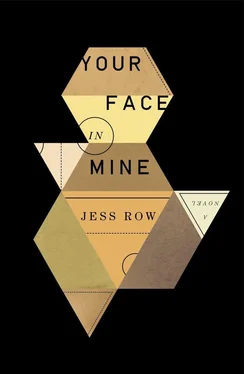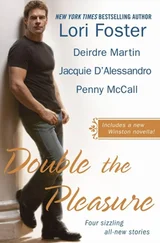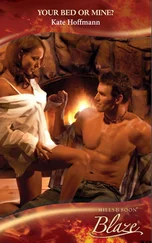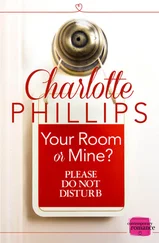No, I understand what you mean. Kind of. I read Imaginary Homelands , too, and it kind of sounded awesome. Like the fatwa was the perfect excuse. Everybody wants a fatwa from their parents at a certain age.
Well, my parents had nothing to do with it.
That can’t quite be true.
No, really. Their emotional lives are just barely above room temperature. Some parents of only children are like that. You must know what I’m talking about. I mean, they can get into the act when they have to. When the accident happened, they were there, after a fashion. Because, literally, I had nowhere else to turn. Our friends were wonderful friends, but it takes more than a good friend to help out in that kind of catastrophe. And in the larger sense, I mean, all those years we were in Baltimore, my parents were just so much on the periphery of my experience. And they knew it. They couldn’t control what was happening to me. Baltimore was way too much for them to handle. New Paltz is exactly their speed. My mom practically runs the library — she volunteers nearly every day. The highlight of their week is singing in the Unitarian Church choir. The truth is, they find parenthood exhausting, and I’m just me, not some kind of train wreck. They made it extremely easy for me to feel like an orphan — a cultural orphan.
I hear you.
You do?
Does that surprise you? Do you even know where I’m from?
Here, I thought. Was I wrong?
I was born here, she says. In my grandparents’ house, while they were still alive. But we left when I was two. Then Champaign-Urbana, where my dad went to grad school. He a civil bureaucrat; he did fiscal planning, bond issues, that kind of thing. He got to like small towns. College towns. Places where the voters weren’t too dumb to pay for a first-class sewer system or a new gym floor before the old one wore out. First Gambier, Ohio. That was middle school. Then Bennington. You’re looking at the valedictorian of North Bennington High School, class of 1994.
Bennington. No kidding.
My dad loves sweater vests, Vivaldi, and Wall Street Week . Does that surprise you? He likes to talk about Mom’s ancestors who fought in the Revolution. The American Revolution. Of course, there’s more to it than that. Before I was born, in the Sixties, he lived in New York and drove a cab and played trombone. He was a Manhattan School of Music dropout, a free-jazz cat. Albert Ayler, Noah Howard, Malachi Favors, Archie Shepp, Pharoah Sanders — he was up there with all those guys. Then, so the story goes, he got into an argument outside a club with some black nationalists, not the Panthers but some splinter group, undisciplined, who said the trombone was a bourgeois instrument only fit for Dixie parades. It wound up with one of them grabbing his bone and beating him over the head with it. He woke up in the hospital. Two weeks later he’d moved back in with his parents and enrolled at Morgan State in accounting.
A one-eighty-degree turn.
He’s not the demonstrative type, she says, but when I told him I was going to Spelman he actually broke down and cried. Why, he said, why, why, when you could go anywhere? Why now ?
And what did you say?
Because I wanted a vacation, she says. I wanted to see how it felt not to be one of two or three. I mean, I shouldn’t complain. My mother didn’t miss a beat. She did my hair right, every day, made sure we read Hughes and Dunbar and The Autobiography of Malcolm X . She found the nearest church with a decent gospel service and got us there at least once a month. And in the summer we were in Oak Bluffs from the minute school got out. It was her parents’ house, and their money that paid for college, too, so Dad actually didn’t have much say in the matter. Of course, afterward I went to Cornell for med school. But he still doesn’t understand Spelman, and doesn’t understand why I want Sherry and Tamika to go there. To him blackness just isn’t a useful category. He’d rather talk about Seneca and Marcus Aurelius. Dignity , that’s what he cares about. I tell him, Marcus Aurelius was George Washington’s favorite writer, and I’ll bet he liked to read him sitting at his desk in Mount Vernon and looking out over the slaves’ backs bent over in the fields.
We’ve come down to the flatland, the ragged end of Fell’s Point, even now dotted with derelict storefronts and shifty, dusty bodegas, shoe stores whose window displays haven’t changed in twenty years. It’s as if there’s a law in Baltimore that gentrification can’t extend more than five blocks in any one direction: a poor city with a pox, an acne spray, of gentility. Chugging past us, though it’s lunchtime, is a school bus filled to the brim, little faces with bright yellow polo shirts squashed against the windows. Girls and boys just a year or so older than Meimei. Kindergarteners. A field trip, is my first thought, but then I remember seeing a headline in the Sun about cutbacks and reductions making kindergarten part-time. They look — is it possible for five-year-olds to look? — weary, and resigned.
You know what I’ve been thinking about? I say to her. The future. The world’s future. I mean, you have to ask yourself, is this world we live in, is this Baltimore, sustainable? I’m taking for granted that in fifty years this spot will be underwater. You have to accept that part. But in the larger sense, I mean, look around you, can you see anything that isn’t some kind of danger sign, some kind of warning?
You really want to know my answer? It’s embarrassing.
Of course I want to know.
Well, she says, it’s Martin. Martin is what gives me hope. I mean, look, I’m a suburban girl. I would never have come back here without him. What I was saying earlier — he has such tremendous confidence. And vision. You know what he says about Baltimore? Have you heard him on this topic? The great thing about a city like Baltimore is that you can get lost here. No one’s paying attention. Where did life begin? It began in the tide pools. The places where things wash up and just sit and get forgotten. That’s what cities are like. We see the donut-hole economy, the collapse of the middle class, the radical disparities of wealth, and he just sees windows, windows, windows of opportunity. I don’t even know what they are. I probably don’t want to know. People talk about the gray economy; well, I know that what he does is gray. But I trust him. He says, the twenty-first century is all about informal networks. All I say is, don’t sell drugs. Don’t sell drugs, don’t sell guns, and don’t sell human beings. But intellectual property? Patents? Copyrights? Proprietary information? I could give a damn. If it comes down to asymmetrical economic warfare, I’m all for it.
The small ax.
Trust a white boy to know his Bob Marley. Yeah. The small ax.
A dusty red Camry festooned with bumper stickers pulls alongside us and slows down — practically, it seems, at my elbow. U.S. Out of Iraq Now. I Love My Country, but We Should See Other People. Nader/LaDuke 2000. I Was at Woodstock and I Vote. Some people just can’t keep their clichés to themselves, I’m about to say, when I glimpse Mort Kepler through the glass, putting a hairy elbow over the passenger headrest and twisting his head, owl-like, to stare at me. As we walk toward the car — too late to change directions, too late to say excuse me and sprint over — he leans over and rolls down the window.
Kelly! Thought you’d have left town by now.
Good to see you, Mort. How’s things?
Figuring out just how far I can stretch my Social Security.
He has a mad grin affixed to his face, a rictus of a smile.
Aren’t you going to introduce me to your friend?
Читать дальше












